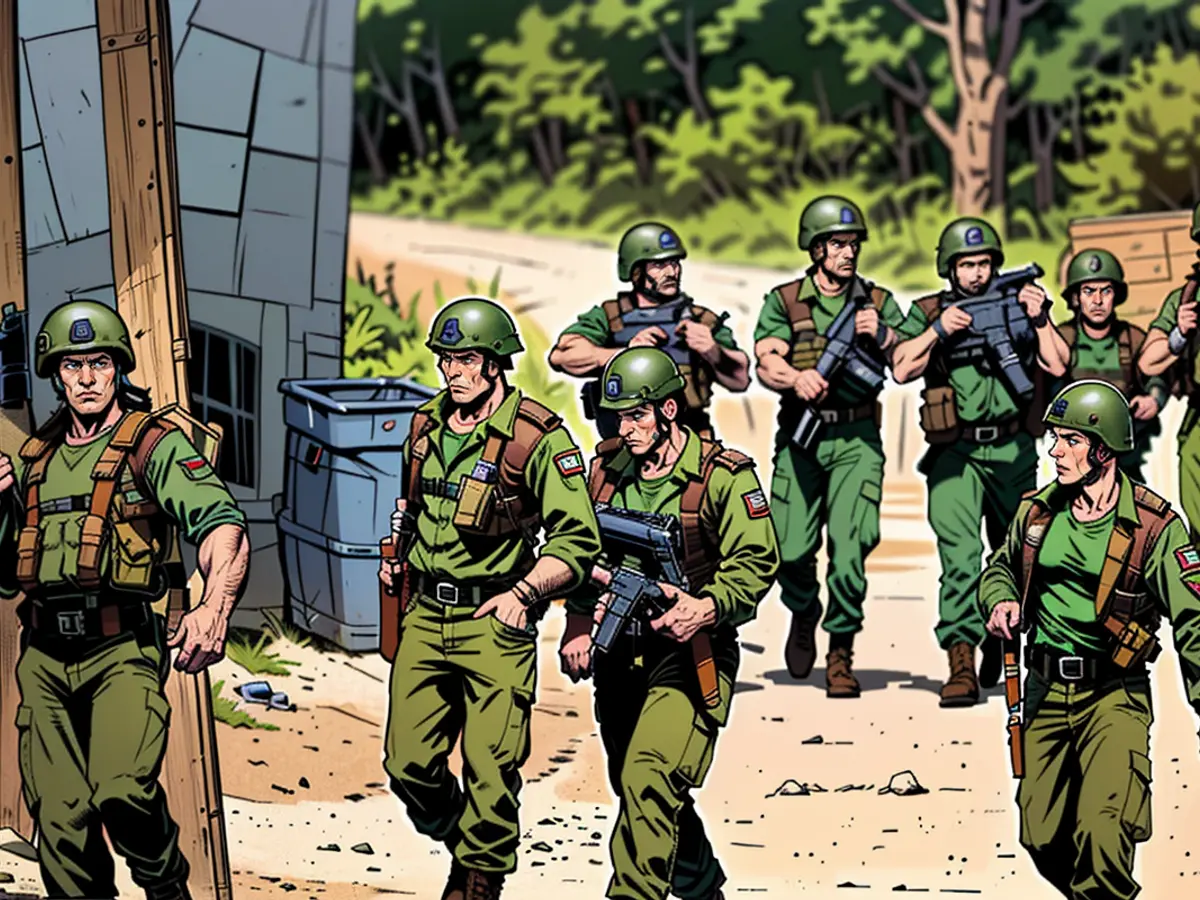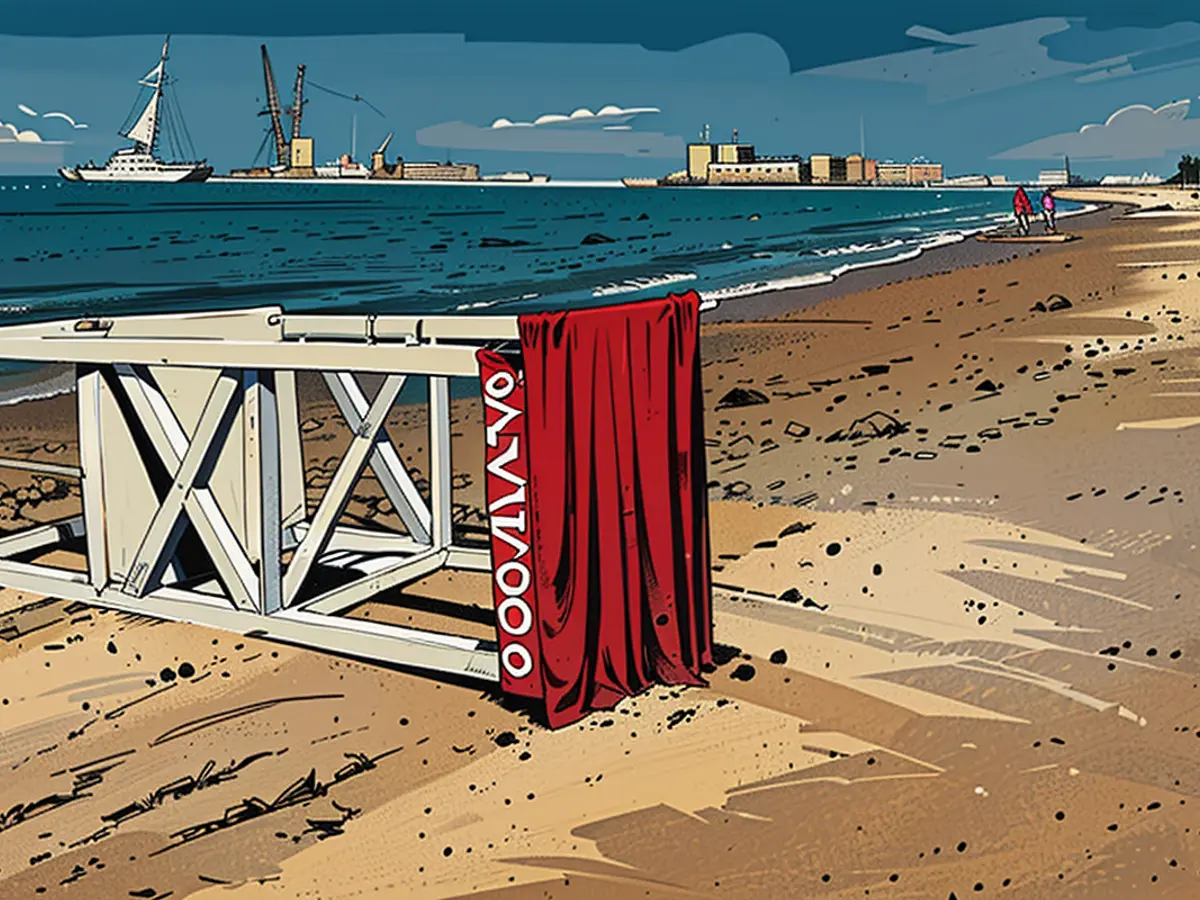Conflict in the Middle East region - The UN Security Council endorses the cessation of hostilities.
The United Nations Security Council has expressed backing for a step-by-step plan to bring about a ceasefire in the Gaza conflict proposed by U.S. President Joe Biden. The resolution was passed by the most influential body of the United Nations in New York, with 14 member states voting for it and Russia abstaining from voting.
For the first time since the start of the conflict, the council has now supported a specific ceasefire proposal. This document supports a plan put forward by Biden, which aims to end the fighting in the Gaza Strip in three stages.
So far, only Israel and the Islamist group Hamas haven't explicitly agreed to the plan. Although there hasn't been a clear and public endorsement of the plan from Israeli Prime Minister Benjamin Netanyahu, the resolution claims that Israel has accepted the plan and urges Hamas to do the same. It calls on all parties to put the plan into action "without delay and without conditions."
Hamas welcomes the Security Council resolution
Hamas has welcomed the resolution and affirmed its intention to carry on with indirect negotiations to reach an agreement. However, this reaction doesn't seem to be a formal acceptance of the proposed three-stage plan. For a long time, Qatar, Egypt, and the United States have been working to negotiate a ceasefire in the Gaza conflict, the release of hostages, and the release of Palestinian prisoners from Israeli jails as brokers.
Representatives of Hamas and the Islamic Jihad confirmed at a meeting in Qatar on Monday that any agreement must encompass a complete end to the fighting, a full withdrawal of Israel from the Gaza Strip, widespread reconstruction of the coastal region, and an end to the blockade.
The Biden-proposed plan calls for a full and unrestricted ceasefire during the first phase, lasting for six weeks. In this period, a specific group of hostages would be set free. In return, Palestinians imprisoned in Israel would be freed.
During the second phase, fighting would be permanently halted, and the remaining hostages would be released. In the final stage, according to the plan, rebuilding Gaza would begin. This is the 11th time since the start of the conflict in the Gaza Strip that the UN Security Council has voted on a resolution concerning the conflict. Only four resolution proposals have been adopted.
The European Union has called for the immediate implementation of the plan. EU Foreign Policy Chief Josep Borrell made the announcement in the evening. The European Union completely supports the comprehensive plan put forth by Biden, confirmed the foreign policy chief.
Uphold the vision of a two-state solution
The UN Security Council also emphasized in the recently adopted resolution that maintaining the vision of a two-state solution, where Israel and Palestinians can coexist peacefully, is crucial. To achieve this, it's essential to reintegrate the West Bank and the Gaza Strip under the leadership of the Palestinian Authority. Currently, Israel's government is against this.
Terrorists from Hamas and other extreme organizations in the Gaza Strip infiltrated southern Israel on October 7, leading to the murder of more than 1,200 people and the captivity of 250 hostages. This incident sparked the Gaza War. Since then, medical authorities claim that more than 37,100 Palestinians have been killed and roughly 85,000 wounded. These figures fail to differentiate between combatants and civilians and therefore cannot be independently verified.
Israeli forces face intense international criticism for their actions in the Gaza Strip, as well as the high number of civilian casualties. Aid organizations characterize the humanitarian situation for the over two million people living in Gaza as disastrous.
Biden's Secretary of State Antony Blinken is amping up the pressure on Hamas during his diplomatic efforts to achieve a ceasefire. During his eighth visit to the Middle East since the beginning of the war eight months ago, Blinken met with Netanyahu in Jerusalem. Blinken made it clear during the meeting that the United States and several political leaders globally support the plan to achieve a ceasefire, as reported by the U.S. State Department.
Blinken had previously said in Cairo that only the Islamist Hamas had not agreed to the plan. "The only party that hasn't said yes is Hamas," he said in Cairo. "Countries in the region and worldwide" will support the plan. "The only outlier at the moment is Hamas."
Today, Blinken will meet with Israeli State President Isaac Herzog. During his Middle East tour, Blinken plans to visit Egypt, Israel, and Jordan, as well as Qatar. In Jordan, he will attend a conference focused on increasing humanitarian aid for the Gaza Strip.
Israeli offensive in the Gaza Strip persists
Israeli troops liberated four hostages from a refugee camp in central Gaza. They're now continuing their operations in that area. The Israeli army is reportedly active in Deir al-Balah and Al-Bureidsch. They're targeting terrorist infrastructure above and underground, as well as rocket launching installations.
Numerous underground tunnels have been destroyed. In Al-Bureidsch, soldiers reportedly killed several terrorists, including a member of Hamas's Nuchba Troops who participated in the October 7 massacre. This information cannot be independently verified. Images from Deir al-Balah showed Palestinians mourning their relatives who were killed in Israeli air strikes.
There's been an alleged Israeli raid on a truck convoy in Syria, causing the deaths of five people and injuring several others. The Syrian Observatory for Human Rights, a UK-based monitoring group, reported that the trucks were traveling to Lebanon through an area managed by the Lebanese Shiite militia, Hezbollah.
A Lebanese security official stated that around nine Israeli missiles were fired at the area. Accounts from witnesses claim that Syrian anti-aircraft missiles were deployed to defend against the Israeli strike near the Syria-Lebanon border. The accuracy of this information was uncertain initially. Israel remained silent regarding the incident.
Israel's air force often strikes targets in nearby Syria. The aim is to halt Iran and its allies from strengthening their military presence in the country. Iran is currently one of Syria's critical allies. The number of unofficial Israeli attacks has surged since the onset of the Gaza war in early October.
Sustained hostilities between Israel and Hezbollah persisted in the Israeli-Lebanese border region. The Israeli military revealed that one of its drones had been downed by a ground-to-air missile in Lebanese airspace, crashing in Lebanon. Additionally, two missiles from Lebanon had been intercepted over northern Israel.





